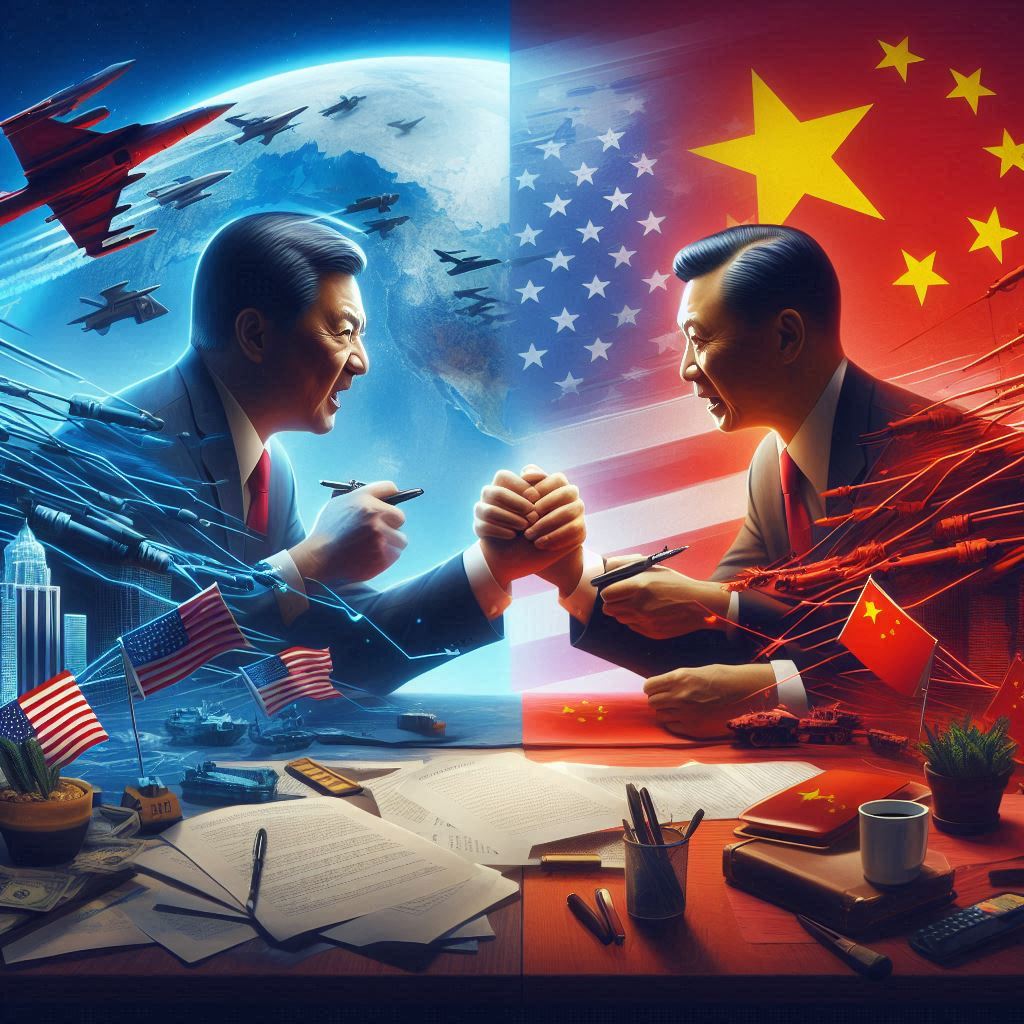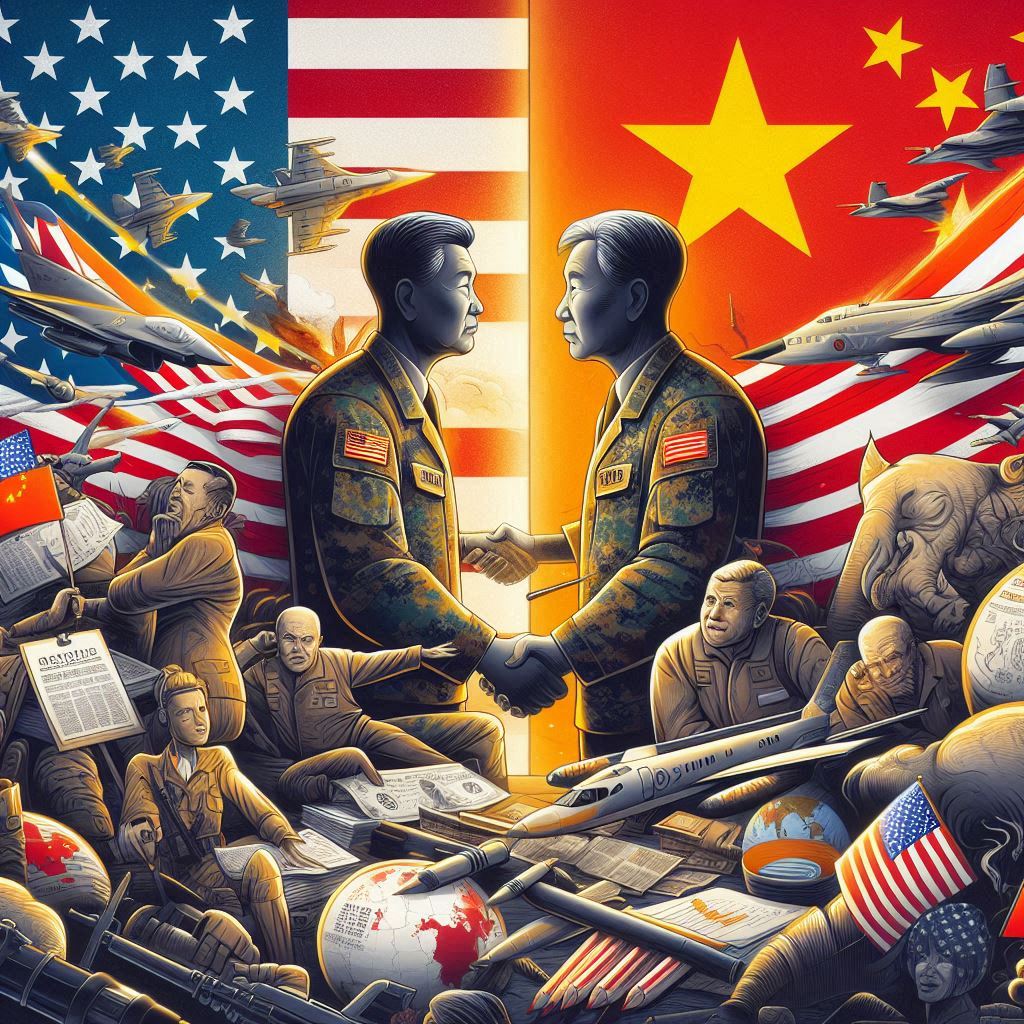川普的當選,美中關係將持續惡化
川普成功以選舉人277票再度當選美國總統,他將會延續甚至加強他在首個任期內的對華強硬政策。川普對中國的態度一直充滿敵意,且以「美國優先」為核心,強調在經濟、貿易和地緣政治上捍衛美國利益,因此他的對華政策會包含多個層面。
首先,在經濟和貿易方面,會進一步加大對中國的關稅措施和貿易限制,以縮小美中貿易逆差,並推動更多製造業回流美國。他一向認為中國「不公平地」獲取全球市場份額,會繼續施壓美國企業減少在中國的供應鏈依賴,甚至擴大對中國企業的制裁。此外,在科技方面對中國保持極高的戒心,會強化針對中國高科技企業的禁令,特別是在5G和人工智慧等敏感領域,將導致更多中國企業被美國限制或列入「實體清單」。還會對美國境內的中資企業加強審查,以防止中國透過併購或投資方式獲取美國的核心技術和機密數據。
在外交與地緣政治上,應會強化美國與其盟友間的合作,形成對抗中國的「聯盟」來限制中國的影響力。例如,在印太地區,會加強與日本、澳大利亞、印度等國家的聯合軍事演習和安全合作,目的在於牽制中國在南海和台海的影響力。川普對台灣的立場歷來較為支持,可能會通過軍售和高層交流來提升台灣的防禦能力,並進一步挑戰「一個中國」的底線。他的行為方式通常不拘一格,長期在外交場合公開批評中國或打破外交慣例,甚至進一步承認台灣地位,這將引發中國的強烈反應。
在人權議題上,川普曾在新疆、西藏等問題上批評中國的政策,但他的立場更多出於戰略考量,而非人權本身。他或許會利用這些議題作為談判籌碼,對中國施加國際壓力,特別是在國際組織中推動對中國的譴責,或對相關中方官員實施更嚴厲的制裁。
此外,川普在全球經濟和能源供應鏈的管理上也可能會做出強硬表態。會鼓勵美國和盟友減少對中國稀土和能源產品的依賴,推動建立「去中國化」的供應鏈,甚至在國際金融體系中制約中國企業的資金流動。這可能包括限制中國銀行在國際市場的操作,或是強化美國資本市場對中國企業的審查和約束。
綜合來看,川普的再次當選,美國的對華政策將會更加強硬,或加劇中美關係的緊張與對抗。在堅持「美國優先」的政策,並在全球舞台上尋求壓制中國的戰略影響力,但這種強硬作法也將導致雙方的矛盾加深,不僅僅是在經濟和貿易層面,還將擴展到地緣政治、科技競賽、甚至是軍事安全等方方面面,從而形成更為複雜的國際格局。
Trump has successfully been re-elected as President of the United States with 277 electoral votes, signaling a continuation—and even an intensification—of his hardline policies towards China. His stance on China has always been adversarial, with a core focus on "America First" to defend U.S. interests in economic, trade, and geopolitical spheres. His China policy is thus likely to span multiple dimensions.
Firstly, in the areas of economy and trade, he is expected to further increase tariffs and trade restrictions on China to reduce the U.S. trade deficit and encourage more manufacturing to return to the U.S. Believing that China has gained global market share “unfairly,” he will likely continue pressuring American companies to reduce dependence on Chinese supply chains and may expand sanctions on Chinese firms. Additionally, he is highly cautious about China’s advances in technology, and will likely reinforce bans targeting Chinese high-tech companies, especially in sensitive fields such as 5G and artificial intelligence. This will result in more Chinese companies facing U.S. restrictions or being added to the "Entity List." Trump is also expected to heighten scrutiny of Chinese businesses operating in the U.S. to prevent China from acquiring core American technology and sensitive data through mergers or investments.
In terms of foreign policy and geopolitics, Trump would likely strengthen collaboration with U.S. allies, forming a coalition to limit China's influence. For example, in the Indo-Pacific region, he may increase joint military exercises and security cooperation with Japan, Australia, and India to counterbalance China’s influence in the South China Sea and the Taiwan Strait. Trump's stance on Taiwan has historically been more supportive, and he may seek to enhance Taiwan's defense capabilities through arms sales and high-level exchanges, further challenging the “One China” policy. Known for his unorthodox approach, Trump may openly criticize China on diplomatic platforms or break with convention, possibly even formally recognizing Taiwan’s status, a move that would provoke a strong response from China.
On human rights issues, Trump has criticized China’s policies in Xinjiang and Tibet, though his stance has largely been driven by strategic considerations rather than human rights advocacy. He may use these issues as bargaining chips to increase international pressure on China, pushing for condemnations in international organizations or imposing tougher sanctions on specific Chinese officials involved.
Additionally, Trump is likely to take a hardline stance on managing global economic and energy supply chains. He may encourage the U.S. and its allies to reduce dependency on Chinese rare earth elements and energy products, pushing to establish “de-Chinafied” supply chains. This could extend to limiting Chinese banks’ operations in international markets or tightening scrutiny and regulation of Chinese companies in U.S. capital markets.
Overall, Trump’s re-election could bring an even tougher U.S. policy toward China, heightening tensions and competition between the two nations. His commitment to "America First" and attempts to curb China's strategic influence on the global stage could exacerbate conflicts, not only in economic and trade realms but also in geopolitics, technology competition, and even military security, contributing to a more complex international landscape.


照片:DALLE3
- 1
- 2
- 3
- 4
